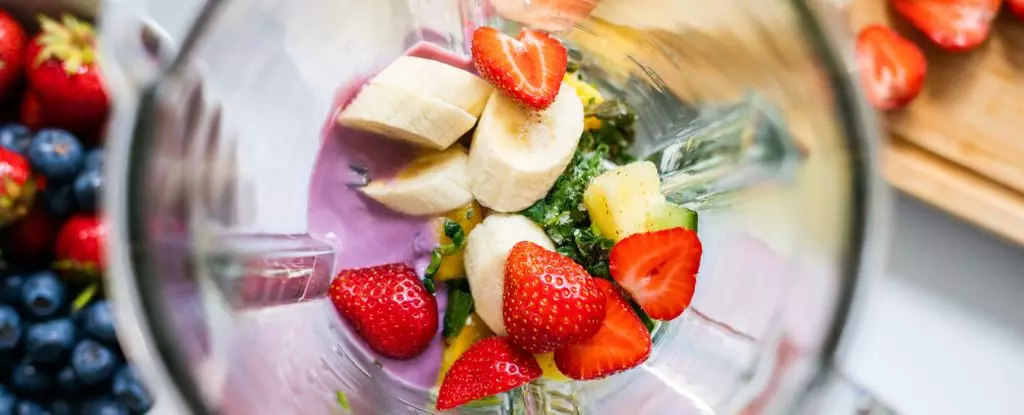When it comes to preparing a berry smoothie, many of us turn to the trusty banana for its potassium-rich properties and the creamy texture it adds to the drink. However, recent research from the University of California Davis (UCD) suggests that adding a banana to your berry mix might actually diminish the benefits of the antioxidants present in the berries. These antioxidants, known as flavonols, can be found in various plant-based foods such as berries, tea, cocoa, apples, pears, and peaches. Unfortunately, most people do not consume enough flavonols in their diet, making it even more critical to ensure their absorption.
Flavonols, when consumed in foods rich in these compounds, are rapidly absorbed into the bloodstream and processed by the body. The resulting metabolites have been linked to several health benefits, including improved cardiovascular health and cognitive function. However, the UCD study reveals that the addition of just one banana to a berry smoothie significantly reduces the levels of flavonol metabolites in the bloodstream. In fact, the metabolite levels were found to be 84 percent lower after consuming a banana-berry smoothie compared to a pure flavonol capsule, highlighting the potential impact of food combinations on the absorption of dietary compounds.
Researchers believe that the presence of an enzyme called polyphenol oxidase (PPO) in bananas contributes to the reduction in flavonol absorption. PPO is responsible for the oxidation process that causes bananas to turn brown when peeled. When exposed to a banana, the antioxidants in the smoothie react with the PPO enzyme, preventing them from providing their full range of benefits in the body. In experiments, a banana-berry smoothie containing high levels of PPO had fewer flavonols than a pure berry smoothie after being left at room temperature for an hour. However, when researchers inhibited the PPO enzyme in the bananas, the flavonols remained intact. This suggests that PPO plays a significant role in limiting the availability of flavonols even before they enter the human body.
To determine if bananas can interfere with antioxidants in the stomach as well, researchers conducted a study with 11 participants. Each participant consumed both a banana drink and a berry drink simultaneously to prevent PPO from interacting with the flavonols before ingestion. Surprisingly, the presence of the banana drink still resulted in lower levels of flavonol metabolites in participants’ bloodstreams compared to when they consumed only the berry drink. Although this study was conducted with a small number of male participants, the researchers at UCD believe that these initial findings warrant further scientific attention.
The UCD study highlights the importance of considering not only the types of fruits and vegetables recommended for increased flavonol intake but also how they are prepared, stored, and consumed as part of a regular meal. It suggests that individuals should be mindful of the impact of food combinations on the absorption and effectiveness of dietary compounds. While bananas are undoubtedly a healthy fruit choice on their own, their presence in a berry smoothie may hinder the absorption process of the flavonols present in the berries. Further research is needed to better understand the mechanisms behind this interaction and its broader implications for overall health.
The addition of a banana to a berry smoothie may negatively impact the absorption and effectiveness of flavonols, which are essential antioxidants. The presence of the enzyme PPO in bananas seems to interfere with flavonol absorption, limiting their health benefits. As consumers, we should be aware of the potential effects of food combinations on the absorption of beneficial compounds. By making informed choices about our dietary habits, we can maximize the potential health benefits of the foods we consume.


Leave a Reply